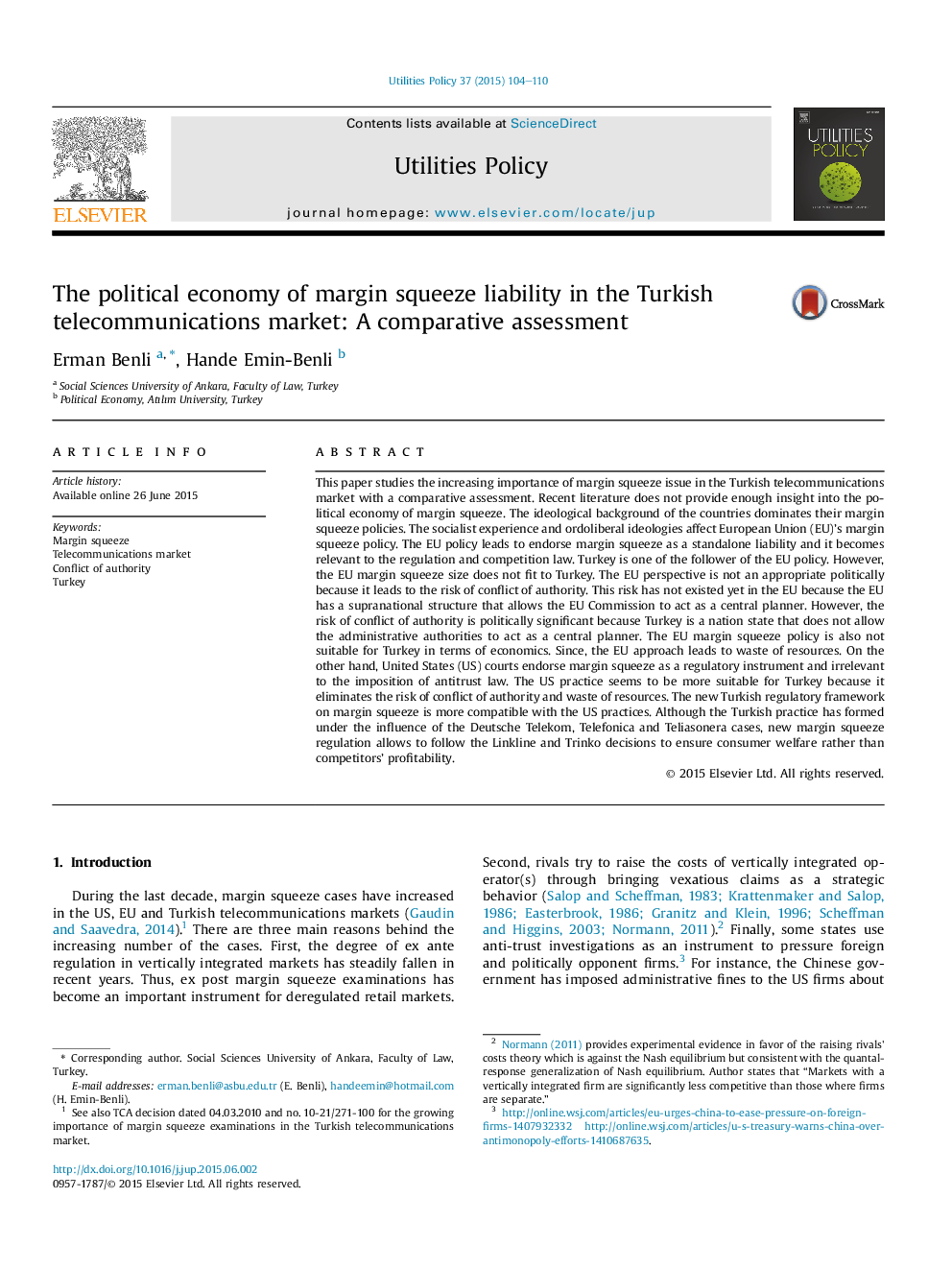| Article ID | Journal | Published Year | Pages | File Type |
|---|---|---|---|---|
| 999941 | Utilities Policy | 2015 | 7 Pages |
This paper studies the increasing importance of margin squeeze issue in the Turkish telecommunications market with a comparative assessment. Recent literature does not provide enough insight into the political economy of margin squeeze. The ideological background of the countries dominates their margin squeeze policies. The socialist experience and ordoliberal ideologies affect European Union (EU)’s margin squeeze policy. The EU policy leads to endorse margin squeeze as a standalone liability and it becomes relevant to the regulation and competition law. Turkey is one of the follower of the EU policy. However, the EU margin squeeze size does not fit to Turkey. The EU perspective is not an appropriate politically because it leads to the risk of conflict of authority. This risk has not existed yet in the EU because the EU has a supranational structure that allows the EU Commission to act as a central planner. However, the risk of conflict of authority is politically significant because Turkey is a nation state that does not allow the administrative authorities to act as a central planner. The EU margin squeeze policy is also not suitable for Turkey in terms of economics. Since, the EU approach leads to waste of resources. On the other hand, United States (US) courts endorse margin squeeze as a regulatory instrument and irrelevant to the imposition of antitrust law. The US practice seems to be more suitable for Turkey because it eliminates the risk of conflict of authority and waste of resources. The new Turkish regulatory framework on margin squeeze is more compatible with the US practices. Although the Turkish practice has formed under the influence of the Deutsche Telekom, Telefonica and Teliasonera cases, new margin squeeze regulation allows to follow the Linkline and Trinko decisions to ensure consumer welfare rather than competitors’ profitability.
